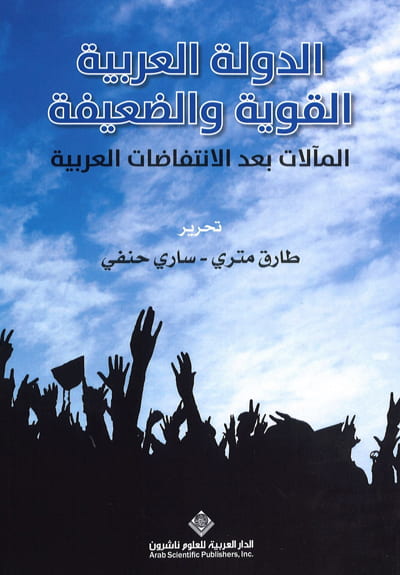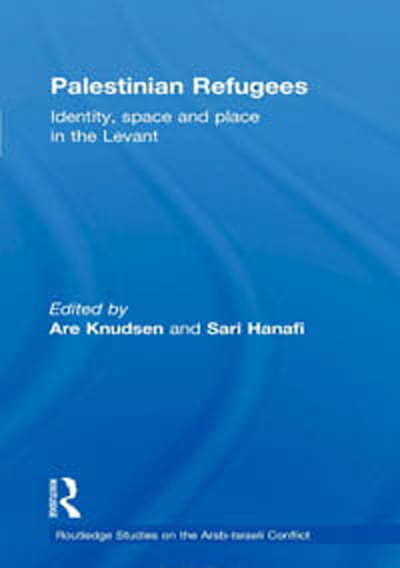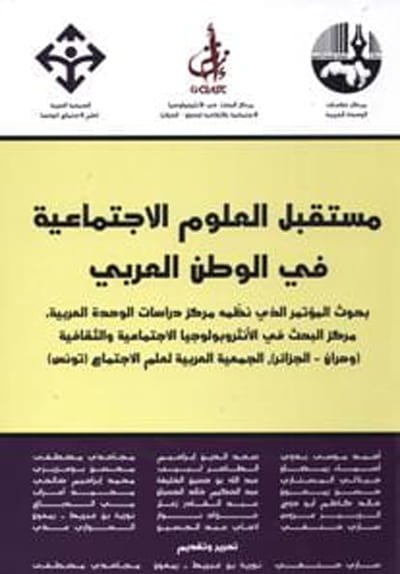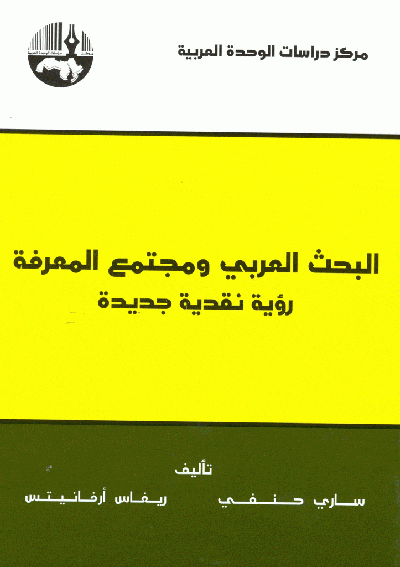Books

در برابر لیبرالیسم نمادین: فرخوان به جامعهشناسی گفتگوي
طهران: روزانه
«در برابر لیبرالیسم نمادین: فراخوانی به جامعهشناسی گفتگویی» نوشته ساری حنفی، استاد دانشگاە آمریکایی بیروت و رئیس پیشین انجمن بینالمللی جامعهشناسی، نقدی تیزبینانه بر تناقضهای مدرنیته متأخر است. حنفی نشان میدهد که چگونه دانشمندان علوم اجتماعی، با وجود ادعای مبارزه با بیعدالتی، ناخواسته به بازتولید آن دامن میزنند. لبه تیز نقد او «لیبرالیسم نمادین» را نشانه میرود؛ رویکردی که در ظاهر پرچم آزادی را برمیافرازد، اما در عمل، مجال گفتگو را تنگتر میکند. کتاب به واسطه پیش گذاشتن «چرخش گفتگویی» و درهم تنیدن فلسفه سیاسی و نقد جامعهشناختی، دریچه ای نو برای خروج از بحرانهای فکری و اجتماعی ارائه میدهد. این اثر دعوتی پرشور برای کسانی است که به بازاندیشی در عدالت، آزادی و امکان گفتگوی واقعی علاقهمندند.
کتاب در برابر لیبرالیسم نمادین: فراخوانی به جامعهشناسی گفتگویی همراه با پیشگفتارهایی از مایکل بوروی، عبدالمحمد کاظمیپور و سید حسین سراجزاده منتشر شده است. پژمان برخورداری پژوهشگر عرصه جامعهشناسی و سیاست این کتاب را ترجمه کرده است.

الليبرالية الرمزية: دعوة إلى علم اجتماع تحاوري
المركز العربي للأبحاث ودراسة السياسات
يبيّن الكتاب أنه في عصر يتّسم بتزايد الاستقطاب، هناك اتجاه لدي العديد من علماء الاجتماع إنتاج الظلم ذاته الذي يسعون لتحدّيه، من خلال اتخاذهم مواقف متجذّرة، ويرفضون التحاور مع من لا يتفقون معهم. ويقدّم المؤلف مفهوم “الليبرالية الرمزية”، ويوضّح التناقض الذي يتمثل في أن هذا الاتجاه يتبنى المبادئ الليبرالية الكلاسيكية من جهة، ويتصرّف بطرائق غير ليبرالية سياسيًّا من جهة أخرى. ويؤكد أن هذا التناقض ساهم في تفاقم أمراض الحداثة المتأخرة (السلطوية، والهشاشة الاقتصادية، والتدمير البيئي) التي تتكشف جميعها في الوقت الراهن في مناخ صار فيه النقاش المعقول يبدو مستحيلًا. ثمّة قوى كثيرة يمكن مساءلتها عن هذه الأمراض، إلا أن المؤلف سَلّط الضوء على قوَّتين رئيستَين: النيوليبرالية والرأسمالية العاطفية. ومن خلال تحليل “نقاط التوتر” الأساسية في الاستقطاب المعاصر، ينتقد الكتاب تشويه الليبرالية الرمزية تعريفَ العدالة من خلال “ترشيق” مفهوم العدل الاجتماعي، وتضخيم كونية حقوق الإنسان، وخلطها بتصوُّر الخير، ثمّ طرح هذا التصوُّر التغَلُّبي قضيةً واحدةً وحيدةً لا تُجزَّأ؛ هي نفسها قضية العدل. يمزج الكتاب الفلسفة السياسية بالأخلاقية وبالنقد السوسيولوجي، ليمضي قُدمًا في عصر أصبح فيه تبادل الأفكار أكثر إلحاحًا، وأكثر عرضة للخطر من أي وقت مضى أيضًا. إن هذا الكتاب ليس نقدًا لحالة الاستقطاب فحسب، بل هو دعوة نقدية ملحّة إلى علم اجتماع تحاوري ولاستعادة الخطاب الفكري الهادف.

Against Symbolic Liberalism: A Plea for Dialogical Sociology
(Preface: Michael Burawoy) Liverpool University Press (Sept. 2025) 256 p
In an era of deepening polarization, Sari Hanafi examines how social scientists often reproduce the very injustices they seek to challenge, taking entrenched positions while dismissing alternative perspectives. He introduces the concept of symbolic liberalism – a contradiction in which individuals espouse classical liberal principles, yet act in politically illiberal ways. This, he argues, has exacerbated the pathologies of late modernity: authoritarianism, economic precarity and environmental destruction, now all unfolding in a climate where reasonable debate seems increasingly impossible. Examining key flashpoints of contemporary polarization, Hanafi critiques how symbolic liberalism inflates the universality of rights while simultaneously narrowing the space for dialogue. Rather than this rigid ideological stance, he calls for a dialogical turn, a renewed public sphere where diverse conceptions of the “common good” engage in genuine conversation. Blending political and moral philosophy with sociological critique, Hanafi offers a path forward in an age when intellectual exchange is more necessary, yet also more imperiled, than ever. Against Symbolic Liberalism is not just a critique of polarization but a critical and impassioned call to reclaim meaningful intellectual discourse.

Un miroir des sciences sociales. Acteurs, pratiques et savoirs au Liban
Candice Raymond, Myriam Catusse and Sari Hanafi (Eds.) Diacritiques Éditions.
Ce « miroir » propose des regards croisés sur les trajectoires de disciplines et de professions qui font les sciences sociales libanaises. Il interroge leurs formations historiques et les pratiques de leurs acteurs, ancrées dans la société et confrontées à des enjeux d’autonomisation et de reconnaissance. Ses différents chapitres entendent ainsi rendre aux sciences humaines et sociales libanaises leurs hommes et leurs femmes, leurs temps et leurs lieux, leurs pratiques et leurs défis. Ils mobilisent les ressources et les outils propres à différentes disciplines, de l’histoire sociale et culturelle à l’anthropologie des savoirs, de la sociologie des sciences à celle des intellectuels, en passant par la géographie et la science politique. Interrogeant la constitution d’histoires proprement libanaises de savoir, ils questionnent aussi la capacité de la communauté scientifique nationale à maitriser ses agendas de recherche aussi bien qu’à actualiser la vocation critique des savoirs. Ce faisant, les sciences humaines et sociales s’avèrent des postes d’observation privilégiés d’évolutions plus générales dans le Liban contemporain : la marchandisation du monde, la division internationale inégale des savoirs productrice de subalternisation ou au contraire de légitimation, la production et reproduction de normes, l’instruction de hiérarchies et d’inégalités, ou encore la mutation des mondes du travail.
- Book review in French: « Liban. Les sciences sociales, miroir de la fragmentation de la société » by Elisabeth Longuenesse.
- In Arabic :
إليزابيث لونغينس. مرآة العلوم الاجتماعية اللبنانية: الفاعلون والممارسة والمعرفة في لبنان. إضافات. المجلة العربية لعلم الاجتماع. إلعدد 59-60. 2023

The Oxford Handbook of the Sociology of the Middle East
Armando Salvatore, Sari Hanafi and Kieko Obuse (Eds.). Oxford Univ. Press.
This chapter is a synthetical one, drawing on previous work on knowledge production in the Arab world in the last decade. It contributes to the debate about how scholarship in the Arab region has struggled with some dichotomies before being able to partially transcend them. The author presents different research trends that have evolved from mainstream critical “glocal” (global/local) trends to the more polarized ones of postcolonial and Islamic perspectives. When analyzing the latter, the author also highlights differences between the trends that existed or evolved previous to and immediately following the 2011 Arab uprisings—cognitively inspired movements that were induced by paradigm shifts in the Arab social sciences.
- Book review by Jibril Ali. Omran Journal. Issue no 43. PP. 137-147
مراجعة جبريل علي. مجلة عمران. عدد 43. صص 137-147.
- مناقشة كتاب دليل أكسفورد لعلم اجتماع الشرق الأوسط بتنظيم معهد الأصفري للمجتمع المدني والمواطنة في الجامعة الأمريكية في بيروت، بالتعاون مع الجمعية اللبنانية لعلم الاجتماع. يوتيوب
“دليل أكسفورد لعلم اجتماع الشرق الأوسط.. فحص نقدي للفكرة التاريخية والاجتماعية للشرق الأوسط”. الحدث.

Studying Islam in the Arab World: The Rupture Between Religion and the Social Sciences
Routledge (2023)
Addressing the rupture between religious and social sciences in Arab universities, this book provides a critical assessment of the curricula of Shariah and Islamic Studies departments across the Arab World, arguing for increased interdisciplinary dialogue.
Based on over 250 interviews with university students and teachers, this study is the sum of five years of field research observing the curricula and teaching styles of colleges in the Shariah sciences. The author provides critical insight into these curricula by focusing on case studies in Lebanon and Jordan, Morocco, Kuwait and Qatar, and in Malaysia. In doing so, the book aims to answer the following questions: What is the aim of religious education? Does it aim to create people who specialize solely in religious affairs, or does it aim to form the student according to a comprehensive human framework? What is the nature of the relationship between the social sciences and the Shariah sciences?
The book concludes by examining three pioneering institutions which have introduced alternative curricula in teaching Shariah studies.
Review of Mohammed Hashas. International Sociology Reviews. 2024, Vol. 39(5) 570–583.
Talk/conversation “Sharia and Social Sciences: A New Approach of Knowledge.”, organized by The Scientific Studies Association (ILEM) – Istanbul. It is moderated by prof. Mohamed El-Tahir El-Mesawi, 1 July 2021.
« Quelle place de la sociologie dans l’étude de l’islam ! » 30 août 2021. Organized by Cri Voix Des Victimes (Zurich).

علوم الشرع والعلوم الاجتماعية: نحو تجاوز القطيعة- أليس الصبح بقريب. مركز نهوض للدراسات والبحوث
الكتاب (800 صفحة) قد استغرق 5 سنوات من العمل الدؤوب . يستهدف هذا الكتاب المختصين في المجالَيْن الشرعي والاجتماعي، بما يقدِّمه من ملاحظاتٍ تعنيهما معًا، وهذا من شأنه أن يوفِّر أرضيةً لحوارٍ مستقبليٍّ عابرٍ للتخصُّصات. وينطلق هذا الكتاب من أنه لا يمكن اختزالُ الدين في الفقه، والفقه يلزمه فهمٌ للأخلاق، وتنزيل الفقه على الواقع يحتاج إلى أدواتٍ علميةٍ كانت تتطوَّر -وما تزال- في بوتقة العلوم الإنسانية عامَّة والعلوم الاجتماعية خاصَّة. وهذا الكتاب هو خلاصات أبحاثٍ ميدانية أُجريت خلال خمس سنواتٍ لدراسة كليات الشريعة في بعض البلدان العربية في المشرق والمغرب، بالإضافة إلى ماليزيا، حيث درس المؤلِّف مكونات هذه الكليات من حيثُ مناهجها وطرق تدريسها لعلوم الشرع وعلاقة هذه العلوم بالحقول العلمية الأخرى. وانتهى الكتاب إلى أن المخرج من التقابلات الضديَّة بين هذه العلوم لن يكون إلَّا بالجمعِ بينها من خلال التحصيل العلمي المزدوج -حتى لو كان بحدِّه الأدنى- بين التكوين الشرعي والتكوين في العلوم الاجتماعية، لمحاولة بناء ذهنيَّة مزدوجة ذات نظرة متفتِّحة حول الدراسات الإسلامية والاجتماعية
Addressing the rupture between the religious and social sciences: Is the morning coming soon?
المحتويات
المقدمة
مقدمة نهوض
مراجعات ونقاشات حول الكتاب
- ندوة نقاشية عقدها مركز نهوض للدراسات والبحوث عن كتاب «علوم الشرع والعلوم الاجتماعية: نحو تجاوز القطيعة (أليس الصبح بقريب)» ل ساري حنفي، يوم الثلاثاء 30 مارس/ آذار. (https://www.youtube.com/watch?v=_rf3QriS01g).
- مناقشة متعمّقة لكتاب “علوم الشرع والعلوم الاجتماعية”. هشام عليوان. 5 نيسان 2021
- مراجعة بعنوان “ساري حنفي.. بين الشرع وعلم الاجتماع”. جريدة العربي الجديد. 28 ابريل 2021
- https://www-alaraby-co-uk.cdn.ampproject.org/c/s/www.alaraby.co.uk/culture/%D8%B3%D8%A7%D8%B1%D9%8A-%D8%AD%D9%86%D9%81%D9%8A-%D8%A8%D9%8A%D9%86-%D8%A7%D9%84%D8%B4%D8%B1%D8%B9-%D9%88%D8%B9%D9%84%D9%85-%D8%A7%D9%84%D8%A7%D8%AC%D8%AA%D9%85%D8%A7%D8%B9?amp=1
- حوار معي بمناسبة صدور كتابي “علوم الشرع والعلوم الاجتماعية: نحو تجاوز القطيعة”. مجلة أواصر
- مقابلة معي في تلفزيون سوريا بمناسبة صدور كتابي “علوم الشرع والعلوم الاجتماعية: نحو تجاوز القطيعة”: https://www.youtube.com/watch?v=S2Ia205nE8U (20 أيار 2021)
- “بين علوم الشرع والعلوم الاجتماعية.. من تفكيك القطيعة إلى تجاوزها عند ساري حنفي”. مراجعة كتابي “علوم الشرع والعلوم الاجتماعية: نحو تجاوز القطيعة”. محمد نور النمر. 27-6-2021.
- Talk/conversation “Sharia and Social Sciences: A New Approach of Knowledge.”, organized by The Scientific Studies Association (ILEM) – Istanbul. It will be moderated by prof. Mohamed El-Tahir El-Mesawi, 1 July 2021. https://www.youtube.com/watch?v=_P0eSWK4pQk
مراجعة جمال فزة. العدد المزدوج 53 – 54 (صيف – خريف 2021) من مجلة إضافات. صص 273-300. https://sites.aub.edu.lb/sarihanafi/files/2019/10/Jamal_Fazza_book_review.pdf

نحو إعادة بناء الدراسات الإسلامية
يستعرض كتاب “نحو إعادة بناء الدراسات الإسلامية” أوراق عمل المؤتمر الأكاديمي الذي جرى بدعوة من كرسي الشيخ زايد بن سلطان آل نهيان للدراسات العربية والاسلامية في الجامعة الأمريكية في بيروت المنعقد في مايو/أيار عام 2018 والذي شارك فيه دارسون من مختلف التوجهات الفكرية والثقافية وخلاله تناولوا أربعة موضوعات: إجراء مراجعة شاملة للتخصص خلال الأربعة عقود الماضمة ومناقشة الأوضاع الحالية للتخصص في شتى مجالاته، ودراسة إمكانية التطوير والتغيير من خلال علائق جديدة بالدراسات التاريخية والسوسيولوجية والفلسفية، وتقييم التوجهات الجديدة في مسائل النص والقراءات الجديدة للحضارة الإسلامية والتيارات الإسلامية المعاصرة.

الدولة العربية القوية والضعيفة: المآلات بعد الانتفاضات العربية
هذا الكتاب الجماعي هو نتيجة دراسات مجموعة عمل ضمن البرنامج البحثي “العنف والخروج من العنف” (بيت علوم الإنسان في باريس ومعهد عصام فارس -الجامعة الأميركية في بيروت). وقد هدفت المساهمات في إثارة الجدل بطريقة نقدية حول موضوع عنف الدولة العربية، القوية منها والضعيفة، وكيف يتم التأثير المتبادل بين العنف، من جهة، ونظام التوزيع والتبادلات التي أسسته السياسات العامة تاريخياً أو حاليا والذي ارتبط بشبكات محلية وزبائنية وطائفية، من جهة أخرى. وكذلك كيف يتم التأثير المتبادل بين عنف الدولة وسياسات الهوية والظلم والسيطرة الاقتصادية والاجتماعية. ويناقش هذا الكتاب مسألة الدولة في تناوله لحالات وطنية خاصة في غير بلد عربي. فالدول الضعيفة أحدثت فراغاً أتاح للعصبيات ما دون الوطنية أن تملأه. وباتت تلك العصبيات ولاّدة للعنف بغياب نظم للمشاركة السياسية القائمة على المواطنة والمساواة. أما الدول القوية فاعتمدت في هيمنتها على المجتمع واستبدادها، على الأجهزة الأمنية ذات اليد الطولى في ممارسة التعسّف والقهر من دون وازع ولا رادع. فدفعت على هذا النحو ضحاياها ومعارضيها دفعاً نحو انتهاج أنواع متعددة من العنف السياسي.
طارق متري: مدير معهد عصام فارس للسياسات العامّة والشؤون الدوليّة في الجامعة الأميركيّة في بيروت، والممثّل الخاص السابق للأمين العام للأمم المتحدة في ليبيا.
ساري حنفي: أستاذ في علم الاجتماع في الجامعة الأميركية في بيروت، ورئيس الجمعية الدولية لعلم الاجتماع.
فصلي في الكتاب: “الدولة العربية في عصر ما بعد-العلمانية”
- مراجعة جميل معوض في مجلة إضافات / العددان 49-50. صص. 217-221.
- مراجعة مصطفى بنزروالة في موقع مؤمنون بلا حدود.

Knowledge Production in the Arab World: The Impossible Promise
Over recent decades we have witnessed the globalization of research. However, this has yet to translate into a worldwide scientific network, across which competencies and resources can flow freely. Arab countries have strived to join this globalized world and become a ‘knowledge economy,’ yet little time has been invested in the region’s fragmented scientific institutions; institutions that should provide opportunities for individuals to step out on the global stage.
Knowledge Production in the Arab World investigates research practices in the Arab world, using multiple case studies from the region with particular focus on Lebanon and Jordan. It depicts the Janus-like face of Arab research, poised between the negative and the positive and faced with two potentially opposing strands; local relevance alongside its internationalization. The book critically assesses the role and dynamics of research and poses questions that are crucial to further our understanding of the very particular case of knowledge production in the Arab region. The book explores research’s relevance and whom it serves, as well as the methodological flaws behind academic rankings and the meaning and application of key concepts such as knowledge society/economy.
Providing a detailed and comprehensive examination of knowledge production in the Arab world, this book is of interest to students, scholars and policy makers working on the issues of research practices and status of science in contemporary developing countries.
Launching event
Reviews
- Round table about the book, al-Mustaqbal al-Arabi, issue no 445 (March 2016). (in Arabic)
- abhath (AUB). By A. Latrach. (no 65-66, 2017-2019, pp. 332-341). (in Arabic)
- al-hayat (London). By Omar al-Kayed, Sat. 19 March 2016. (in Arabic)
- حميد الهاشمي. مجلة عمران. عدد 15.
Umran. By Hamid al-Hashimi (issue 15, 2016, pp. 181-86) (in Arabic)
- Inspire Jordan by Riad al Khouri (https://inspirejordan.com/articles/researching-research-how-the-arab-world-lags/)
- نوافذ (الإسلام اليوم). هشام رفاعي
Nawafez (Islam Today). by Hisham Rifai. 29-5-2017. http://www.islamtoday.net/nawafeth/artshow-42-238167.htm.
- Insight Turkey, by Jordi Quero Arias. Spring 2016. Pp. 183-189.
- القدس العربي. ” خارطة السوسيولوجيا في العالم العربي اليوم: الانتفاضات ودور الباحث المحلي؟”. محمد تركي الربيعو.
al-Quds al-Arabie by Mohamad Turki al-Rebio.

Palestinian Refugees: Identity, Space and Place in the Levant
More than four million Palestinian refugees live in protracted exile across the Middle East. Taking a regional approach to Palestinian refugee exile and alienation across the Levant, this book proposes a new understanding of the spatial and political dimensions of refugee camps across the Middle East. Combining critical scholarship with ethnographic insight, the essays uncover host states’ marginalisation of stateless refugees and shed light on new terminology on refugees, migration and diaspora studies. The impact on the refugee community is detailed in novel studies of refugee identity, memory and practice and new legal approaches to compensation and “right of return”. The book opens a critical debate on key concepts and proposes a new understanding of the spatial and political dimensions of refugee camps, better understood as laboratories of Palestinian society and “state-in-making”.
This strong collection of original essays is an essential resource for scholars and students in refugee studies, forced migration, disaster studies, legal anthropology, urban studies, international law and Middle East history.
Are Knudsen is Research Director at the Chr. Michelsen Institute (CMI) in Bergen, Norway. He has published a number of articles on honour killings in Pakistan, Islamism among Palestinian refugees in Lebanon and the Palestinian Hamas, and he is currently involved in research on conflict and co-existence in post-civil war Lebanon, Palestinian refugee camps in Lebanon and the democratic turn within Hamas.
Sari Hanafi is Professor of sociology at the American University of Beirut (AUB), Lebanon. He has written extensively on economic sociology and network analysis of the Palestinian diaspora; relationships between diaspora and center; political sociology and sociology of migration (mainly about the Palestinian refugees); and sociology of the new actors in international relations (NGOs and international NGOs).
Reviews:
– International Sociology Reviews 30(2) By Sophie Richter-Devroe. (2015)
– Journal of Intervention and Statebuilding. By Mandy Turner. (2012)
– جريدة العربي الجديدal-Arabi AlJadeed by Yaser Gharib (2016) (in Arabic) (#عربي)
– جريدة العربي الجديد al-Arabi AlJadeed by Fouad Fouad (2016) (in Arabic) (#عربي)

مستقبل العلوم الاجتماعية في الوطن العربي
تم تقسيم الكتاب إلى ثلاثة محاور وأدرج كل مقال من المقالات المنشورة في هذا الكتاب وفقا لاهتمامات الباحث في محور من المحاور الثلاث. يتعلق الأول بالمرجعيات في العلوم الاجتماعية، أما الثاني فيحوي مجموعة الأعمال التي اهتمت بالبحث وتدريس العلوم الاجتماعية في الوطن العربي دون إغفال الإنتاج العلمي سواء ما ورد في سياق المقالات أو العمل الذي اشتغل حصريا على تجربة بعينها. يضم المحور الثالث: أسئلة علم الاجتماع والانثروبولوجيا وجملة الأعمال التي تناولت حقلا محددا كالدين، اللغة، النوع، الثورة وغيرها من المواضيع وتقف كل منها على أهم التساؤلات التي يطرحها الحقل المعرفي سواء في الوطن العربي ككل أو قطر من أقطاره في حد أدنى.
المراجعات
Reviews
– International Sociology Book Reviews. By Lisa Taraki, 2016 vol. 31 no. 2 186-89.
– المستقبل العربي. مراجعة ليزا تراكي. عدد 449. 2016
al-Mustaqbal Al-Arabi. By Lisa Taraki (in Arabic)
- جريدة الحياة، من قبل كرم الحلو. 24 مارس 2015
al-Hayat. (2015) by Karam al-Helo
al-Arabi Al-Jadeed by Abaheer al-Saqqa.
- مجلة إضافات، من قبل أباهر السقا (مراجعة مطولة) (2016).
Idafat: the Arab Journal of Sociology. By Abaheer al-Saqqa. Issue 33-34.
- جريدة القدس العربي. من قبل محمد الروبيو. 2 آب 2019
Review in al-Qods al-Arabi. By Mohamad Alrabiuo. 20-8-2016.

البحث العربي ومجتمع المعرفة: رؤية نقدية جديدة
zzz
المراجعات
Reviews
– International Sociology Book Reviews. By Lisa Taraki, 2016 vol. 31 no. 2 186-89.
– المستقبل العربي. مراجعة ليزا تراكي. عدد 449. 2016
al-Mustaqbal Al-Arabi. By Lisa Taraki (in Arabic)
- جريدة الحياة، من قبل كرم الحلو. 24 مارس 2015
al-Hayat. (2015) by Karam al-Helo
al-Arabi Al-Jadeed by Abaheer al-Saqqa.
- مجلة إضافات، من قبل أباهر السقا (مراجعة مطولة) (2016).
Idafat: the Arab Journal of Sociology. By Abaheer al-Saqqa. Issue 33-34.
- جريدة القدس العربي. من قبل محمد الروبيو. 2 آب 2019
Review in al-Qods al-Arabi. By Mohamad Alrabiuo. 20-8-2016.
For more details about other books, go to the main page and click on the book cover
